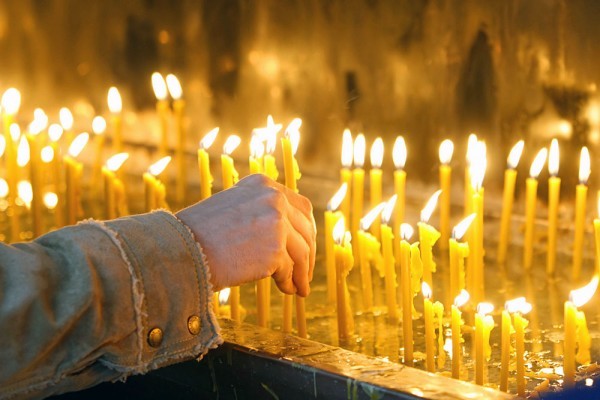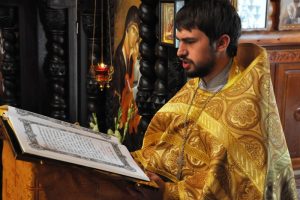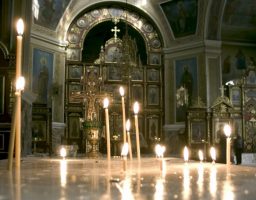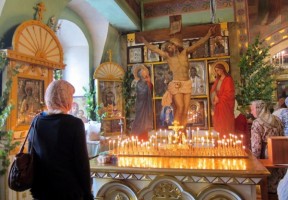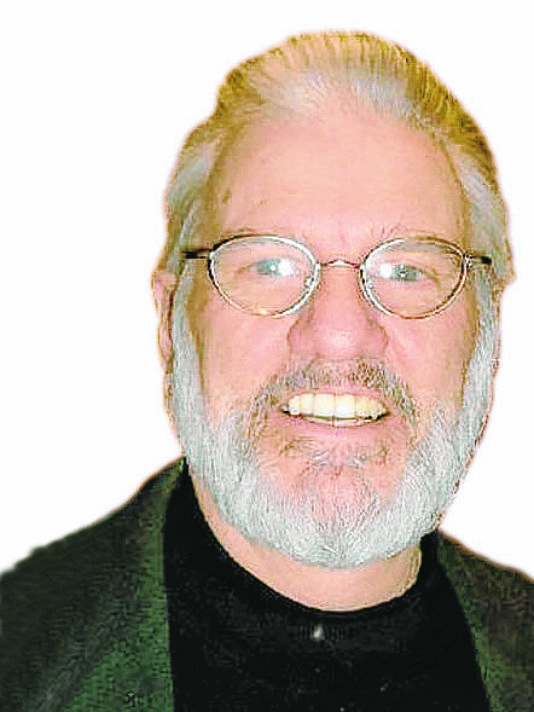
Fr. Gabriel Rochelle
Shortly before we left Pennsylvania I asked my immediate relatives to come for dinner and to make a pilgrimage to the grave of my parents and aunt and uncle. When we got there I served a panakhida, which is a prayer service for the departed. In the midst of it when we name those we commemorate I asked those gathered to say the names of their departed relatives for inclusion in the prayer. This was especially for in-laws of the family, and I was surprised by the response. People said the names of parents, brothers and sisters, and other family, some tearfully. It became obvious to me in the conversations afterward that, for some of them, this was the first time they had ever openly mentioned those lost to them.
In Orthodox tradition this prayer service is a common practice. People ask to have it served on the Sunday closest to the annual death date of a family member or friend. Annually on St. Thomas Sunday, the Sunday after Easter, people flock to our national cemetery in New Jersey for what is called Radonitsa, the day of brightness, when we celebrate that the Light of Easter reaches beyond the grave. Many will gather again this year to serve panakhida at their family graves.
As an important aside, one clear note in all grief psychology says that you should remember publicly the names of those lost. So often people treat the grieving in exactly the wrong way, as if they should hide the name of the departed person, when in fact it’s just the opposite; you should ask people for remembrances, use the name often, remind them that you have not forgotten their parent or child or friend. Our ancient prayer forms were founded on good psychology long before anyone invented the concept.
There may be those readers who are in churches where the whole notion of praying for the dead is castigated. While it is true that physical death marks the end of the opportunity for spiritual growth in this life, those of us in the Orthodox Church believe — indeed, know — that this is not the end. God’s hand, so to speak, reaches into and beyond the grave. We don’t accept the teaching of purgatory, that the dead must in some way repair the sins of this life. But by the same token we don’t believe that God abandons us simply because we have left this physical life. Why should spiritual growth be restricted to this life alone? If our ability to grow spiritually in faith and love and service is at the heart of what it means to be fully human, then we accept that the process goes on and on. We pray for that movement, that growth, on behalf of others. The point is actually quite simple: God’s love extends beyond this life to act on people’s lives.
St. Gregory of Nyssa, who thought long and deep about these matters, wrote that if God is truth and beauty and goodness, these are unfolding realities; they are not finished or hard categories. My ability to see beauty unfolds over the course of my life, and it is never ending because there is always more beauty to comprehend. In like fashion, St. Gregory reasoned, our growth in and toward God’s Presence is similar to our comprehension of beauty as a never-ending process. So we can always grow more deeply into God, even beyond this life, which means at the same time that we can always move more deeply into what it means to be fully human. That’s the end even when it’s not in sight.
Fr. Gabriel Rochelle is pastor of St. Anthony of the Desert Orthodox Mission, Las Cruces. The church website is http://stanthonylc.org. You are cordially invited to visit the church.












